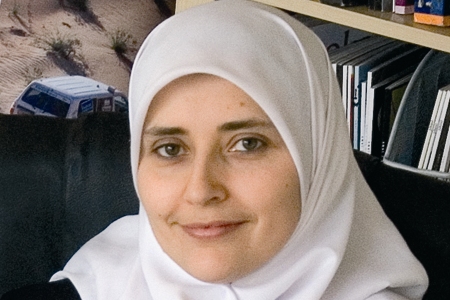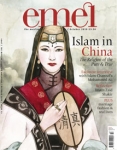
The Religion of the Pure and True
Issue 73 October 2010
Within eighty years of hijra there were pagoda-style mosques in China. This extraordinary fact encapsulates in a tangible way the essential idea that Islam can traverse cultural boundaries easily and quickly.
The notion that Islam – meaning self-surrender unto God – can transcend time and space may be understood in two ways: to replicate 7th Century Arabian society throughout the entire world; or to generate solutions and civilisations based upon a moral, ethical and spiritual framework.
I believe it has to be the latter, and China’s pagoda-style mosques physically manifest that. There was no attempt by those early Arab Muslim traders to China to import a particular mosque construction. Instead, they saw different architectural structures and embraced them, removing only the elements they deemed to be inimical to self-surrender to God.
It is not just the pagoda-style mosques, however. It is the very name by which Islam came to be known. The Muslims who took Islam to China did not attempt a phonetic rendering of the word “Islam” as we have done in English, and as the post-Mao Communists did in China. Instead, they found characters within the Chinese alphabet that could convey to the indigenous people of China the very essence of Islam. They chose Qingzhen 清真 meaning, the religion of the pure and true.
In this age of globalisation, with the easy transmission of information and speedy movement of people both conquering time and space in a unique format, we are bypassing the natural progression of an indigenous expressions of Islam in the West. At the same time we are witnessing the erosion of any authentic indigenous expressions of Islam in places where they had developed.
“We have created you into nations and communities so that you may know one another, not so that you may hate one another,” proclaims the Qur’an, and not so you can attempt to turn the concept of self-surrender unto the Divine into a single monolithic cultural expression that denies the uniqueness and differences of people over time and space.
Today, within vastly different geographic locations with multi-faceted indigenous cultures, we seem to expect that a single expression of Islam will suffice. We make no allowance for urf, local custom, and do not seek to indigenise the values of Islam; instead we hope that ready-made solutions from far afield can be imported and implemented. But Islam has always been bespoke; there has never been a ‘one size fits all’ approach. This adaptability is what has allowed billions of people over the world to follow the same faith but in their own distinctive cultural ways.
In our situation in Britain, the overwhelming perception of Islam and Muslims is that of a foreign body or of a foreign culture; ‘Muslims’ and ‘immigrants’ are used synonymously, despite the many decades of Muslim presence. Muslims have not yet transposed the fundamentals of their faith into indigenous forms of expression of that faith; there is still a distinct Arab or Asian manifestation. The master Chinese calligrapher Hajj Mai Guang Jiang makes the point beautifully (see interview on page 52) when describing Chinese mosques, “They are Muslim. They are Chinese. They are utterly distinct from any mosque you will see in any other country of the world.” Mosques of the world should reflect local designs and materials; the clothes of Muslim men and women should accommodate local styles; children need names with good meanings, but not necessarily Arabic ones; food needs to be halal but our cuisine can be eclectic, and so on.
It seems the early pioneering Muslims were not afraid to create different cultural expressions of their faith; they were bold, confident in their identity and courageous about what they were doing. Today’s Muslims appear unduly cautious; comfortable in duplication but not creativity; clinging to alien customs at the expense of generating new ideas; denigrating urf and failing to understand their fellow citizens; living as foreigners in a land supposedly home. The contradictions are numerous and in the end will prove to be counter- productive to the creation of indigenous Muslim identities unique to their country, including Britain.
The fundamental message of Islam has the potential to be truly relevant to the world today. We cannot attempt to replicate 7th Century Arabia, but we should generate solutions based upon eternal and universal values. We should not be satisfied with just looking back at history, we need to look to the future and make self-surrender unto the Divine relevant to our time and our society.
Bookmark this |
|
Add to DIGG |
|
Add to del.icio.us |
|
Stumble this |
|
Share on Facebook |
|
Share this |
|
Send to a Friend |
|
Link to this |
|
Printer Friendly |
|
Print in plain text |
|


Comments
2 Comments
1
Saira
2 Oct 10, 07:41
This article truly moved me to tears. How Allah ta'ala Subhana wa ta'alahu has protected and proliferated his Deen through much adversity and oppression. Purity and truth will always prevail Inshallah. Thank you for writing this article so eloquently.
2
Ifti
30 Sep 10, 16:08
Man is the product of his cultures, languages and faith. The needs and demands of the migrant Muslims are different from those of native Muslims. Majority of Muslims are from Pakistan. They have to develop their cultural, linguistic and spiritual identities. There is a positive corelation between language and culture. Their children need to learn and be well versed in Urdu to keep in touch with their cultural roots and enjoy the beauty of their literature and poetry. They need to learn and be well versed in Arabic to recite and understand the Holy Quran. They need to learn and be well vewrsed in standard English to follow the National Curriculum and go for higher studies and research to serve humanity. The problem is that they learn English in the streets and in the playgrounds. British schooling does not teach English to migrant children. The teachers let them speak the same accent in the classroom. They needstate funded Muslim schools with bilingual Muslim teachers.